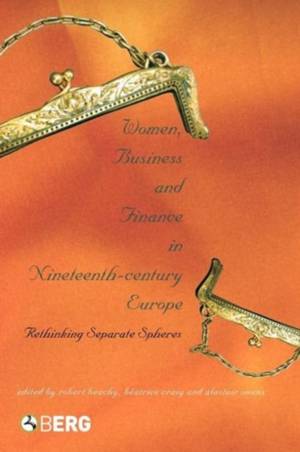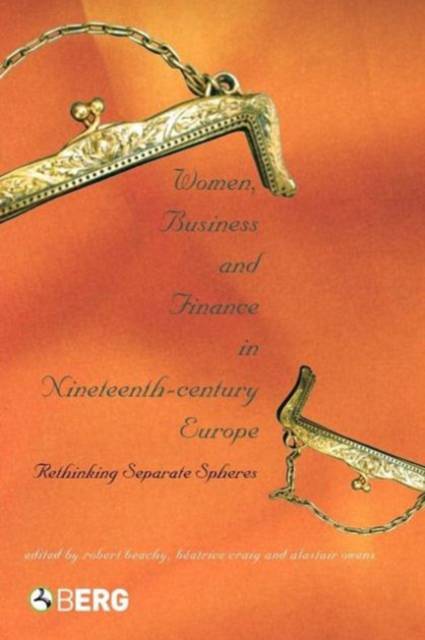
- Afhalen na 1 uur in een winkel met voorraad
- Gratis thuislevering in België vanaf € 30
- Ruim aanbod met 7 miljoen producten
- Afhalen na 1 uur in een winkel met voorraad
- Gratis thuislevering in België vanaf € 30
- Ruim aanbod met 7 miljoen producten
Zoeken
Women, Business, and Finance in Nineteenth-Century Europe
Rethinking Separate Spheres
Paperback | Engels
€ 79,95
+ 159 punten
Omschrijving
Looking at women, business and finance in the long nineteenth century, this book challenges our traditional understanding of 'separate spheres' -- whereby men operated in the public world of work and women in the private realm of the domestic. Drawing on case studies throughout Europe, this book reveals that there was much greater diversity in women's economic experience across all social strata than has previously been understood. International contributors take a new look at women's roles in finance and investment, family-owned businesses, retailing, service activities, and the artisanal trades. They reveal that elite and middle-class women often manipulated financial resources in a highly sophisticated manner. Family-owned businesses and retail trade geared to women, such as grocery and fashion, also offered women opportunities. Throughout, the book considers the impact of industrialization on women's economic agency and examines women in the accommodation business in London, female entrepreneurs in Italy, prostitutes in Germany, family businesses in Sweden, women in publishing in Spain and much more.
Specificaties
Betrokkenen
- Uitgeverij:
Inhoud
- Aantal bladzijden:
- 256
- Taal:
- Engels
Eigenschappen
- Productcode (EAN):
- 9781845201852
- Verschijningsdatum:
- 1/08/2005
- Uitvoering:
- Paperback
- Formaat:
- Trade paperback (VS)
- Afmetingen:
- 162 mm x 234 mm
- Gewicht:
- 390 g

Alleen bij Standaard Boekhandel
+ 159 punten op je klantenkaart van Standaard Boekhandel
Beoordelingen
We publiceren alleen reviews die voldoen aan de voorwaarden voor reviews. Bekijk onze voorwaarden voor reviews.










